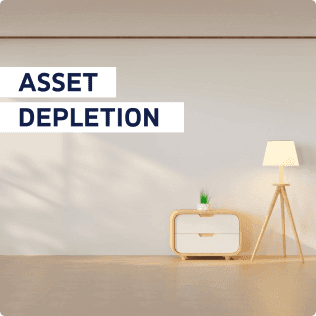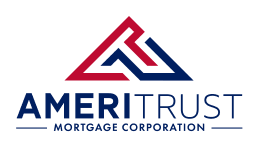Definition
What are Investment Loans
Delve into the realm of real estate investing with a comprehensive overview of investment property loans, a pivotal tool for transforming property aspirations into income-generating opportunities.
Investment property loans, offered by Ameritrust Mortgage, are specialized financial products tailored for acquiring properties intended for income generation rather than personal residence. These properties encompass single-family homes, condos, apartment buildings, and commercial spaces. Below is an in-depth breakdown provided by Ameritrust Mortgage of investment property loans, encompassing their features, prerequisites, and critical considerations:
Higher Interest Rates
Due to the perceived higher risk, interest rates for these loans typically exceed those for primary residence mortgages.
Larger Down Payments
Borrowers are typically required to provide down payments of 20% to 30%, a higher percentage than primary residences.
Strict Credit Requirements
Lenders mandate a good to excellent credit score for approval, reflecting the heightened financial risk involved.
Debt-to-Income Ratio (DTI)
A DTI ratio demonstrating the ability to manage additional debt is crucial, with lenders typically preferring a DTI lower than 45%.
Consideration of Rental Income
Lenders may factor potential rental income into loan eligibility calculations, contingent upon a history of property management or existing rental agreements.
Loan Types
Different Types of Investment Property Loans?
There are several types of investment property loans available in the market, each with its own advantages and disadvantages. Some of the most common types of investment property loans are:
Conventional Mortgages
Offered by traditional lenders, these loans come with stringent requirements due to the property's non-owner-occupied status.
Government-Backed Loans
While primarily for primary residences, select programs such as FHA offer options for multi-unit properties if the borrower commits to residing in one of the units.
Hard Money Loans
Short-term, high-interest loans from private investors or companies, suitable for properties necessitating renovation before renting or resale.
Home Equity Loans
Borrowers can tap into equity from their current home to finance the purchase of an investment property.
What do you need
Requirements and Considerations
Financial Reserves
Lenders may mandate several months of mortgage payments in reserve to cover unforeseen vacancies or repairs.
Property Management
Management of an investment property can be demanding; lenders may inquire about your property management plans or experience in real estate investing.
Insurance and Taxes
Investment properties often incur higher insurance and tax costs, considerations for loan approval.
Legal and Regulatory Compliance
Compliance with local landlord-tenant laws, zoning ordinances, and federal regulations is imperative.
Points to Know
Benefits and Risks
Income Generation
Well-selected and managed investment properties can yield steady rental income.
Property Appreciation
Over time, properties may appreciate in value, potentially offering substantial returns upon sale.
Tax Advantages
Investors can deduct mortgage interest, property taxes, and other expenses from taxable income.
Market Fluctuations
Real estate markets can be volatile, impacting property values and rental demand.
Maintenance Costs
Unforeseen repairs and upkeep can affect profitability.
Vacancy Risks
Periods of vacancy can diminish income, necessitating financial reserves for ongoing expenses.
Swift Programs
Explore Our Array of Loan Programs Tailored to Suit Your Needs
Discover home-ownership with our tailored loans. Our expert team ensures you get the perfect loan for your unique needs.



Have Questions?
Curious about anything?
Below you can find the answers to frequently asked questions.
Anything Unclear or Need Some Help? Relax, We Are Here for You 24/7
Relax and take comfort in knowing that our 24/7 support ensures you're never alone on your financial journey.
Customer Service
Please provide your query, and we will assist you as quickly as we can.
AmeriTrust Mortgage Corporation
NMLS# 217229
888-499-9060
17341 Irvine Blvd., Suite 285Tustin, California. 92780
2201 Spinks Road, Suite 233 Flower Mound, TX 75022
info@ameritrust-mortgage.com
Business Hours Monday - Friday 8:00 AM to 5:00 PM PST
© Copyright 2024, All Rights Reserved Ameritrust-Mortgage - Powered by Maple54
- Contact Us
- Business Hours Monday - Friday 8:00 AM to 5:00 PM PST
Stay Connected
+1 ( 888 ) 499 - 9060
info@ameritrust-mortgage.com
Address: 17341 Irvine Blvd., Suite 285, Tustin, CA 92780
LOAN CENTER
LOAN TYPES
QUICK LINKS
OUR LOCATION
- +1 ( 888 ) 499 - 9060
- 17341 Irvine Blvd., Suite 285,
- Tustin, CA 92780
REFINANCE SOLUTIONS
LOAN PROGRAMS
HOME PURCHASE LOAN
Privacy | Terms & Conditions | Sitemap
© 2024 - Copyright - Powered by Maple54



